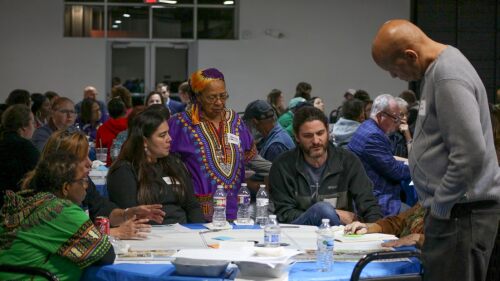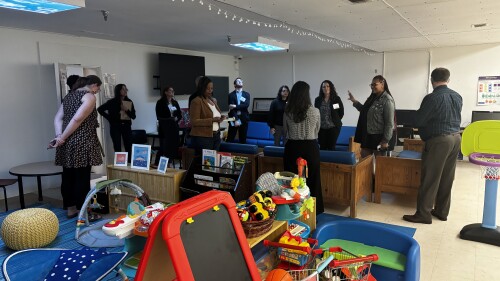Kansas City, Missouri, can help tackle the city’s racial division by establishing a more equitable process for parks and recreation investment, according to a report releasedby ULI. The report advises the city to listen to the broad-based needs of the community and establish a new parks conservancy to raise funds, advocate for improvements, and deliver programs that activate the public realm.
Access the full report on ULI Knowledge Finder.
The report is based on recommendations from a panel of parks and equity experts convened last December through the Institute’s Advisory Services program at the request of the Kansas City Parks and Recreation Association. The panel was invited to advise the city on how to create an equitable park system that works for the benefit for all residents, not just a privileged few. The panel toured the city’s parks and interviewed a wide range of stakeholders in conjunction with the 10 Minute Walk Campaign, a national movement striving to ensure that residents of urban neighborhoods throughout America have access to a high-quality park within a 10-minute walk from their homes. The visit concluded with initial recommendations by the panel, which were explained in further detail in the report.
The report’s recommendations include the following:
- Establishing a parks conservancy. The parks conservancy would attract broad-based support from the community and would be able to raise funds, advocate for policies and resources to improve the public realm, and provide relevant programs, activations, and events that connect residents to parks;
- Providing an equitable approach to maintenance, park development, and programming. The parks and boulevard system should change its planning and development processes, focusing on the people most harmed, to produce equitable social outcomes. This includes creating a shared definition of equitable planning and development so that access to KC Parks planning, programming, and maintenance can be addressed with community buy-in;
- Better aligning the capital budget to maximize opportunities to leverage limited resources. A more collaborative process surrounding citywide budgeting would enable KC Parks to better realign its capital budget with available capital funding and staff expertise as well as refocus to reduce operation and maintenance and new revenue opportunities; and
- Using the upcoming comprehensive planning process to evaluate development patterns and code surrounding parks. The city’s planning and development department should implement a more holistic neighborhood strategy to coordinate resources both within the urban core and suburban areas, following smart growth principles outlined in the report as well as recognize that housing should be seen as a necessary and complementary use to neighborhood parks.
The panel was chaired by ULI member Carlton Brown, principal, Direct Invest, New York City. “Kansas City and the entire country have been awakened to the challenges of structural racism and how policies have created, in essence, two Americas: one Black and one white,” he said. “The observations and process recommendations contained in this report may not only point the way forward in Kansas City but may also inform the creation of a blueprint for other communities around the country that believe in a future in which the entire community thrives equitably together.”
Brown was joined on the panel by David Abraham, lecturer/research scientist, Rice University, Houston; Karen Abrams, program officer, Equitable Development, the Heinz Endowments, Pittsburgh; Kate Humphrey, director of development, Public/Private Partnerships Division, Housing and Revitalization Department, City of Detroit, Detroit, Michigan; Emeka Moneme, senior vice president and managing director, the Menkiti Group, Washington, D.C.; Bonnie Roy, partner, SWT Design, St. Louis; and Allison Schapker, director, capital projects, Fairmount Park Conservancy, Philadelphia.
“Racial inequity is not just a regional issue, but a national one, and one the real estate industry has sadly played a role in,” said ULI chief executive officer W. Edward Walter. “We want to make this right. ULI is working to identify the systemic elements of community planning, real estate development, and financing that have helped establish a legacy of racial inequities and find solutions to tackle them. Reports like this one are opportunities to have this discussion and present recommendations to address the systemic failures affecting our ability to build just and inclusive communities.”
In response to the travel restrictions associated with COVID-19, ULI has developed Advisory Services offerings that can be conducted virtually. Virtual offerings are ideal for land use, real estate, and municipal policy challenges that may not require a site visit from ULI.




